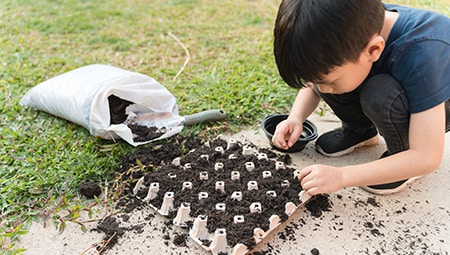
Learn why sustainability matters and how to practice sustainable living every day.
Every day we make dozens of choices that affect the world around us. On their own, each individual action might not seem important for sustainability, but bit-by-bit these lifestyle choices can make a real impact on the world right now—and the world we leave behind for future generations.
What is Sustainability?
While most people appreciate that sustainability is important, fewer understand what sustainability is actually about. In simple terms, sustainability is about our ability to maintain and support humanity’s future along with that of the natural world.[1] This definition of sustainability was also part of The National Environmental Policy Act passed by the U.S. Congress and signed into law in 1969.[2] This act ensured that pursuing environmental sustainability was core to all national policies in the U.S.
In a nutshell, living sustainably means that we are able to meet our own needs without compromising the ability of future generations to meet their own needs.[3] With finite resources available, sustainability is all about using those resources wisely with the long-term in mind.[4]
Although sustainability has been an important topic for decades, if not centuries, it has become a hot-button issue recently as more and more people have become aware of the impact humans are having on the environment.
3 Key Principles of Sustainability
There are three interconnected pillars of sustainability that are used to structure the value and impact of sustainable living. By supporting these three principles, human and nature can exist in productive harmony.
Environmental Sustainability
One of the core sustainability principles is protection of the environment—everything from the air we breathe to the water we drink.[5] Environmental sustainability and protection means that we don’t remove resources faster than the planet’s ability to regenerate it.[6] It can be easy to feel powerless when thinking about environmental protection, since it involves the entire global ecosystem, but meaningful environmental protection can start in something as small as a backyard composting bin.
Social Development
Sustainability is more than just our impact on the environment—it is also about promoting and protecting social development through an equitable society and basic, universal human rights.[7] Ensuring health for all communities is key part of the social development pillar.
Economic Development
The final pillar of sustainability focuses on economic development. Most products we buy today, whether a laptop or a car, have a finite lifespan and a quantifiable footprint on the environment. Economic sustainability is about finding ways to reduce this footprint while still supporting the needs of consumers. You can help support economic sustainability by making informed decisions about the products you buy and recycling or reusing old belongings whenever possible (for example, donating an old laptop rather than throwing it away).
Why Sustainability Matters
Sustainability is a necessity if we want to maintain our ecosystems and way of life. Pursuing sustainable alternatives shows that we care about protecting the environment, enabling a strong economy, and—most of all—ensuring that our families can live healthy, happy lives.
Sustainable living means supporting our current needs while balancing the needs of future generations. After all, we want to leave a future for our kids and grandkids—one where they can breathe clean air, eat real food, and live healthy lives.
Living Sustainably
Sustainable living means understanding how our lifestyle choices impact the world around us, and finding ways for everyone to live better.[8] There are many aspects to your life and routine that can you make more sustainable. While working towards a zero-waste lifestyle is the most sustainable way to live, there are many small swaps you can make in your life to decrease your environmental impact. Sustainable living is a marathon, not a sprint; focus on actions that feel attainable to pursue for the long-term. Here are some simple choices you can make to live more sustainably:
- Focus on reducing consumption. Before making a purchase, see if there are ways you can reuse belongings or buy it gently used.
- Carry a reusable water bottle rather than buying plastic ones.[9]
- Swap out single-use paper towels for reusable wipes.[10]
- Skip the harsh chemicals and look for eco-friendly cleaners that have biodegradable or recyclable packaging, organically-grown ingredients, and no phosphates or chlorine.[11]
Learn more about ways you can make your home sustainable here.
[3] Diversity for Social Impact




